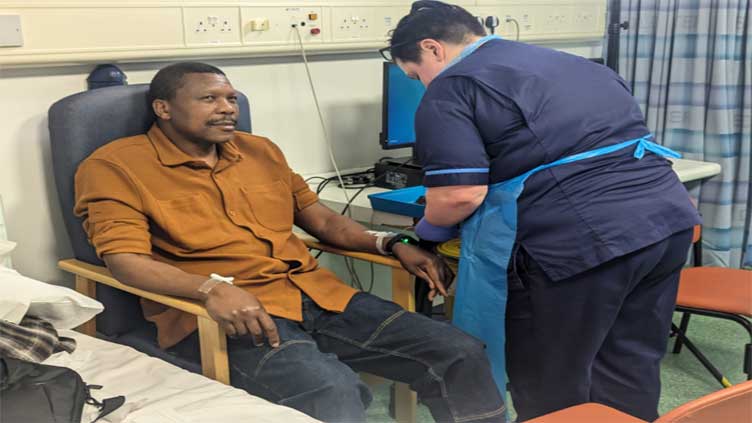Four key breakthroughs mean cancer 'won't be a death sentence'

Drugs were “100-per- cent effective” or gave “remarkable” results
(Web Desk) - IT’S a worrying fact that more than half of us will get cancer in our lifetime.
Each year around 385,000 people are diagnosed and 167,000 lives are lost to the disease in the UK . . . and experts have warned of an alarming new surge in the young.
But, in the face of rising cases, there is good news — the future of cancer care looks brighter.
“Cancer “ and “exciting” don’t tend to go hand-in-hand yet those are the words on the lips of scientists following a series of studies of new-age treatments.
Many emerged from the American Society of Clinical Oncology conference in Chicago, including research that claimed drugs were “100-per- cent effective” or gave “remarkable” results.
Prof Lawrence Young, inset, an oncologist who has been working in cancer research for 40 years, tells Sun Health: “We are turning a corner with cancer, there is no doubt about it.
We’ve learned a lot about the basic mechanisms of cancer development, and a lot about other processes, such as how the immune system works, but it has taken a long time to put all these things together.
“With significant technological developments, we are entering a golden age of cancer diagnosis and treatment.”
Cancer survival has improved markedly over the past few decades.
But it’s not going away — Cancer Research UK warned earlier this year that cases have risen in the past quarter-century, partly because of screening programmes but also due to a growing population, obesity and other lifestyle habits.
Prof Young says new therapies mean that “cancer is no longer a death sentence”.
He says: “There are lots of different approaches to treating patients with cancer — and living a healthy life even though you’ve got it, rather than trying to completely eradicate it.”
But it comes against a backdrop of what has been called a UK cancer-care crisis, with long waits for diagnoses, and survival rates worse than in comparable countries.
The NHS is at the forefront of trialling innovative therapies, but can it afford to roll them out nationwide?
Prof Young says: “All these things are great in theory and very exciting, but they’re costly and the NHS won’t be able to cover the cost of some things.
But the hope is that these things will get cheaper as they are developed and become more standardised.”


